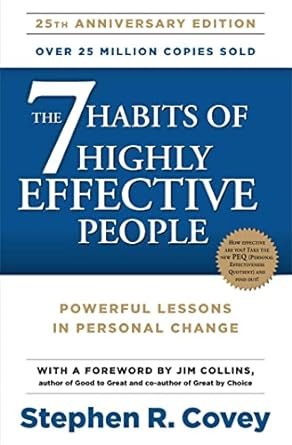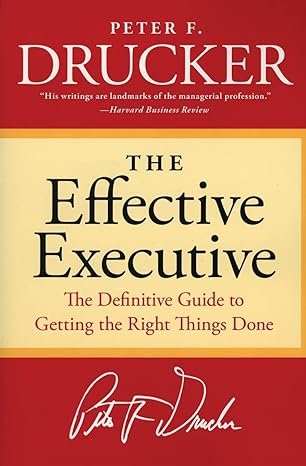Here are military leadership books that offer valuable insights and lessons, regardless of your background
1. On War by Carl von Clausewitz
“On War” by Carl von Clausewitz is a seminal work on military strategy and philosophy, first published in 1832. The book is a comprehensive analysis of the nature and conduct of war, drawing from Clausewitz’s experiences as a Prussian military officer. It provides insights on the principles of war, the role of politics and chance, and the importance of understanding the motivations of enemies. Considered a foundational text on military theory, “On War” remains a relevant and influential work, studied by scholars and military professionals alike. It is a must-read for anyone interested in military history, strategy, and theory.
2. The Prince by Niccolò Machiavelli
“The Prince” is a renowned treatise written by Niccolò Machiavelli in 1513. The book is a practical guide for monarchs and leaders, offering advice on how to acquire and maintain power. It explores ideas such as the importance of fortune, the role of morality, and the need for adaptability in politics. Machiavelli’s principles, often misunderstood as cynical and amoral, actually aimed to provide a realistic framework for understanding the complexities of politics and statecraft. A considered reading of “The Prince” can provide valuable insights into the nature of power and leadership.
3.The Art of War by Sun Tzu
“The Art of War” by Sun Tzu is an ancient Chinese military treatise that has been widely applied to various fields beyond warfare. Written around 500 BCE, the book presents 13 chapters of strategic principles, tactics, and strategies for winning conflicts. Its timeless wisdom covers topics such as planning, espionage, alliances, and adaptability, emphasizing the importance of deception, speed, and surprise. This iconic text has influenced philosophers, politicians, and business leaders throughout history, including Napoleon Bonaparte, Mao Zedong, and Henry Kissinger. Its principles remain relevant today, making “The Art of War” a valuable resource for decision-making and strategic thinking.
4. Extreme Ownership: by Jocko Willink
“Extreme Ownership: How U.S. Navy SEALs Lead and Win” is a leadership book written by Jocko Willink and Leif Babin, retired U.S. Navy SEALs. The book emphasizes the importance of taking ownership of one’s actions and decisions, even in the face of adversity. Willink and Babin draw from their experiences leading SEAL teams in Iraq to illustrate the principles of leadership and teamwork. The book provides actionable advice on how to lead effectively, build trust, and make tough decisions, making it a valuable resource for business leaders, entrepreneurs, and anyone seeking to improve their leadership skills.
5. The 7 Habits of Highly Effective People by Stephen Covey
“The 7 Habits of Highly Effective People” by Stephen Covey is a self-help book that has profoundly impacted personal and professional development. Published in 1989, the book outlines seven habits that highly effective people adopt to achieve success and effectiveness. These habits include being proactive, beginning with the end in mind, putting first things first, thinking win-win, seeking first to understand, synergizing, and sharpening the saw. The book’s principles are based on Covey’s extensive research and are presented in a clear and concise manner, making it a valuable resource for anyone seeking to improve their personal and professional lives.
6. The Dichotomy of Leadership by Jocko Willink
“The Dichotomy of Leadership” by Jocko Willink is a thought-provoking book that delves into the paradoxical nature of leadership. Willink, a former Navy SEAL commander, argues that effective leadership requires embracing opposing forces, such as discipline and freedom, hardness and softness, and precision and adaptability. He explores how these dichotomies can be reconciled through a leader’s personal development, decision-making, and actions. The book provides practical insights and lessons learned from Willink’s military experience, making it a valuable guide for leaders seeking to improve their skills and achieve true success.
7. Band of Brothers by Stephen Ambrose
Band of Brothers is a historical book by Stephen E. Ambrose, published in 1992. The book focuses on the experiences of Easy Company, 2nd Battalion, 506th Parachute Infantry Regiment, 101st Airborne Division, during World War II. It is based on interviews with the veterans of Easy Company and provides a detailed account of their bravery and camaraderie throughout the war. The book was later adapted into a critically acclaimed HBO miniseries, also titled “Band of Brothers,” in 2001. Ambrose’s work is recognized for its thorough research and poignant storytelling, offering a unique perspective on the war.
8. Unbroken by Laura Hillenbrand
Unbroken: A World War II Story of Survival, Resilience, and Redemption” is a non-fiction book written by Laura Hillenbrand, and published in 2010. The book tells the true story of American bombardier Louis Zamperini, who survived a plane crash, 47 days on a raft at sea, and more than two years in Japanese POW camps during World War II. Zamperini’s experiences are a testament to the power of the human spirit, and the book has been widely acclaimed for its moving and inspiring account of survival, perseverance, and redemption.
9. The 21 Irrefutable Laws of Leadership by John C. Maxwell
“The 21 Irrefutable Laws of Leadership” by John C. Maxwell is a bestselling book that provides a comprehensive guide to effective leadership. Written by a renowned leadership expert, the book presents 21 fundamental laws that are essential for leaders to understand and apply in their roles. From the Law of the Lid to the Law of Addition, each law offers practical insights and principles for leadership growth and development. Whether you’re an established leader or an aspiring one, this book provides valuable guidance on how to lead with purpose, inspire others, and achieve success.
10. The Effective Executive by Peter Drucker
“The Effective Executive” is a management book written by Peter Drucker, a renowned organizational theorist and author. Published in 1966, the book focuses on how executives can achieve their goals and maximize their effectiveness. Drucker identifies five key capabilities of effective executives: making effective decisions, taking responsibility, communicating effectively, setting clear goals, and allocating resources efficiently. He also provides practical advice on how to prioritize tasks, delegate responsibilities, and manage time effectively. The book is considered a classic in the field of management and leadership, and its principles and strategies remain relevant today.
Read more :
Author
-
Hey, I am Ramesha a Librarian and Blogger by Passion and the Founder of Digilibtech. Digilibtech is a Jobs and Exams News Portal that Provides Latest Jobs News and Here We will Provide you with Learning Content. And Also Learning Material About Library and Information Science, KVS Exam, and the NET Exam.
View all posts















